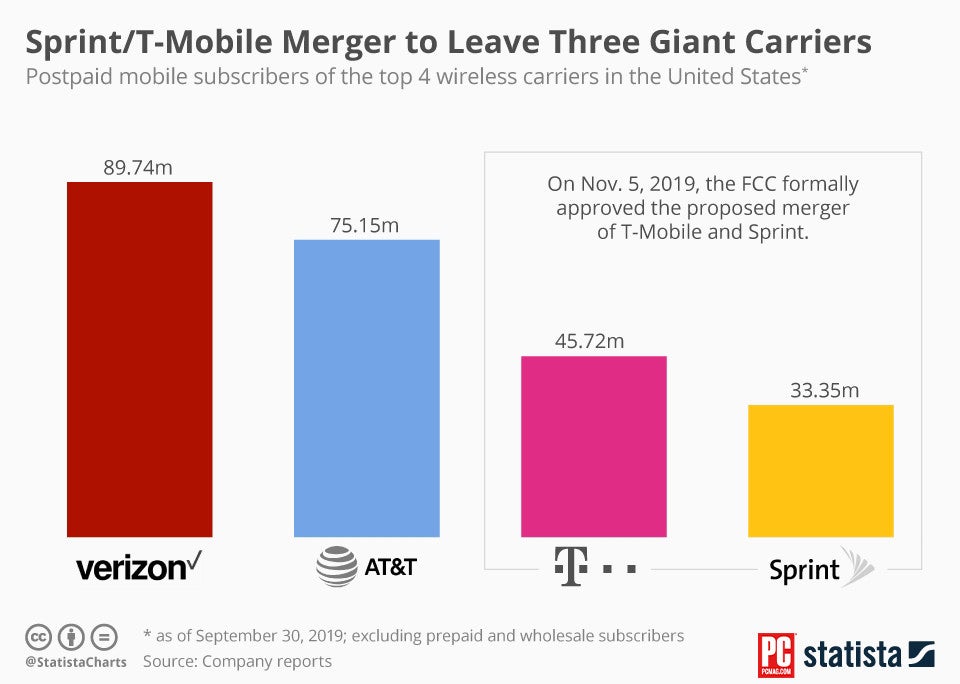The Wireless Landscape After T-Mobile and Sprint Merge After a tight FCC vote, the organization's commissioners gave the merger an 'OK,' approving it 3 to 2.
By Rob Marvin
This story originally appeared on PCMag

While numerous state lawsuits still stand in the way of T-Mobile's unendingly fraught merger with Sprint, the two wireless carriers cleared their last federal regulatory hurdle when the FCC formally approved the merger to whittle the big US cellular network providers from four down to three. It was a tight vote, with FCC commissioners voting 3 to 2 to OK the merger; the Justice Department had already approved the deal.
FCC Chairman Ajit Pai has previously signaled his support for approval after agreeing to revised terms including the sale of Sprint subsidiary Boost Mobile, specific 5G milestones and the creation of an in-home broadband product, which T-Mobile floated as a boon to regulators.
Despite plenty of pricing loopholes and questions over how the merger will affect carrier competition in a consolidating market, the pendulum has definitively swung toward approval. Based on postpaid (monthly billed) mobile subscriber numbers, the post-merger wireless market will be dominated by three major carriers that will be matched about evenly.
Related: How to Choose the Right Mobile Service for Your Business
According to company reports, as of September 30 of this year, Verizon is still the leading carrier wth 89.74 million subscribers. AT&T is second at 75.15 million subscribers, and T-Mobile is third with 45.72 million. When you add Sprint's 33.35 million, that puts the merged carrier at over 79 million subscribers.
Sprint doesn't break out the Boost Mobile subscriber number, but it's estimated to be around 7 to 8 million. Even subtracting that, the combined carrier will still have more than 70 million subscribers, closing the gap with Verizon and AT&T just as the race to 5G reaches its pivotal rollout phase.
While PCMag's nationwide network testing indicates the merger would be great for 5G speeds, the deal will almost certainly reduce price competition and ultimately drive up costs for consumers. FCC commissioner Jessica Rosenworcel, who voted against the merger, said in her official statement that "Shrinking the number of national providers from four to three will hurt consumers, harm competition and eliminate thousands of jobs ... the T-Mobile-Sprint merger will end a golden age in wireless."










